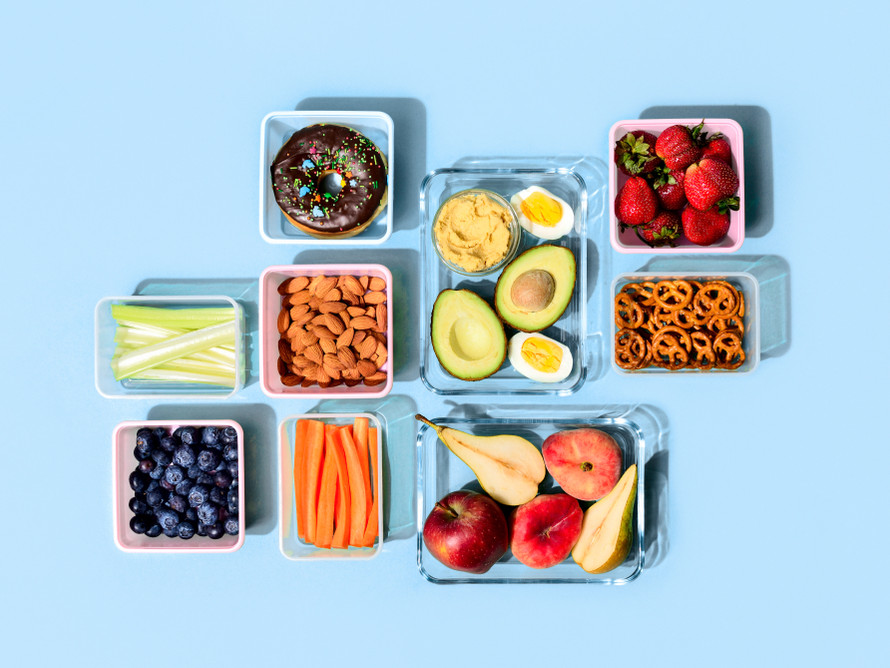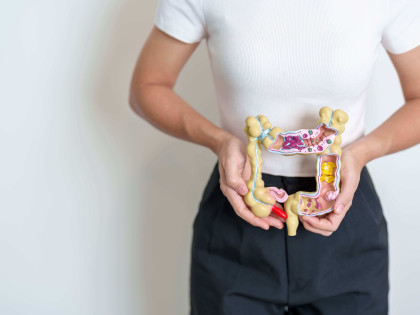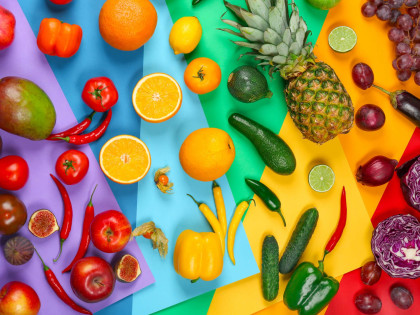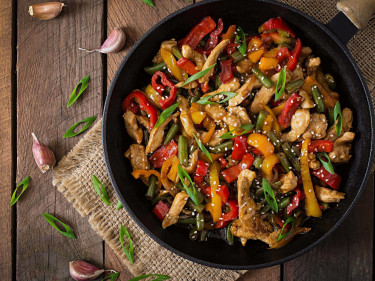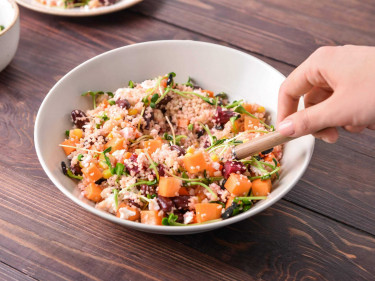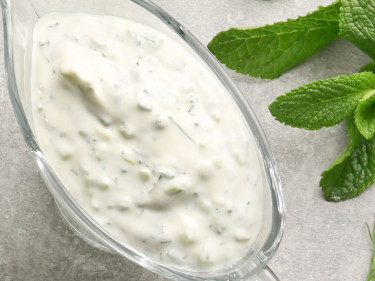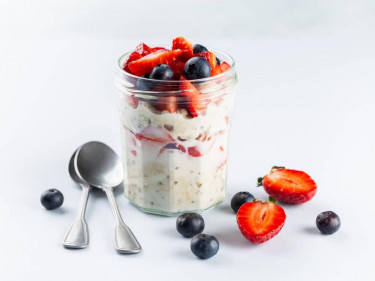Are your snacks helping or hindering your health goals? Snack foods commonly fall into the category of discretionary foods. Discretionary foods are ultra-processed, refined foods that are high in energy, saturated fat, salt and/or added sugars, such as chocolate, chips or sugar sweetened drinks.
Research into snacking behaviours found that many factors influence a person’s snacking habits, including the types of snacks eaten, their perceptions of snack foods, age, sex, where snacks are consumed, culture and traditions, and whether a person eats breakfast, lunch and/or dinner.
Rather than snack foods being ultra-processed, energy dense and nutrient poor foods, such as chocolate, chips, cakes and pastries, healthy snacking considers the contribution of snacks to your total energy intake and includes foods from the core food groups that are nutrient dense. Healthy patterns of eating may include snacks between main meals, though it isn’t necessary to include snacks to be healthy.
When including snacks, it is important to consider how they contribute to your overall food and energy intake and adjust the energy in your other meals. Including healthy snacks may be a way to improve your diet quality and dietary variety, as well as your intake of health promoting nutrients, supporting your mood, energy levels and physical activity requirements.
SMART SNACKING
A smart snack is one that supports what you’re doing in the day and contributes to your overall diet quality, without contributing excess energy. If the idea of a snack sends you reaching for a packet of chips or a chocolate bar, instead, consider snacks as a small meal, with the goal of providing slow-release energy and key nutrients that are beneficial to your health.
How to choose the right snack?
- Choose your snacks based on your energy requirements; if you are spending a lot of your day sitting down, consider a light snack such as a piece of fruit or vegetable sticks and hummus. If you are more active throughout the day, or you are undertaking moderate to strenuous exercise, consider a snack that provides you with the energy needed for this. E.g a small bowl of low-fat yogurt, frozen berries and a small amount of wholegrain cereal.
- Choose snacks that provide around 600 kilojoules of energy. Read the nutrition label on packaged snacks to understand the serving size, energy and nutrients provided by your snack. Design your snacks to include a source of protein, such as boiled eggs, a can of tuna, or a small handful of nuts, carbohydrates for fibre, preferably wholegrain and/or low glycaemic index (GI), including multigrain crackers or wholemeal bread, and colour from fruits and vegetables.
- Fruits and vegetables provide beneficial vitamins and minerals and are often lower in kilojoules than many other snack foods.
- Look for foods with lower GI carbohydrates such as oats, wholegrains and legumes to help you feel fuller and sustain your energy levels for longer.
- Check in with your hunger levels. Are you hungry, bored or distracted?
- Plan for and pack healthy snacks to save you reaching for less healthy, convenience options
- Limit distractions when you eat snacks, as you would when eating main meals
A little preparation can go a long way when it comes to smart snacking. Get your snacks on track and try some of these swaps to satisfy your snacking cravings!
SWAP THIS | FOR THIS |
Chocolate Bar (50g or approx. 2 rows of a block) Energy: 1115kJ Total Fat: 14.8g Saturated Fat: 9.1g Carbohydrate: 28.7g, Added sugar: 20g Dietary Fibre: 1.7g |
510kJ/ brownie Energy: 510kJ Total Fat: 6.2g Saturated Fat: 1.8g Carbohydrates: 12.7g, Added Sugar: 2.4g Dietary Fibre: 2g |
Plain Chips (27g or approx. 1 single serve packet) Energy: 460kJ Total Fat: 7.3g Saturated Fat: 0.7g Carbohydrates: 9.3g, Added sugars 0.2g Dietary Fibre: 0.6g |
Energy: 314kJ Total Fat: 5g Saturated Fat: 0.5g Carbohydrates: 5.6g, Added sugars: 0g Dietary Fibre: 1.5g |
Ice cream (60g or approx. 1 medium scoop) Energy: 469kJ Total Fat: 4.2g Saturated Fat: 3.1g Carbohydrates: 16.7g, Added sugar: 9.4g Dietary Fibre: 0g | NMNT Mango and Yoghurt Popsicles Energy: 458kJ/popsicle Total Fat: 2.0g Saturated Fat: 1.4g Carbohydrates: 18.9g, Added Sugars: 0g Dietary Fibre: 1.5g |
Lollies (40g or approx. 2 handfuls) Energy: 464kJ Total Fat: 0.4g Saturated Fat: 0.4g Carbohydrates: 30.8g, Added sugar: 19.8g Dietary Fibre: 0g |
Energy: 433kJ/2 bliss balls Total Fat: 1.9g Saturated Fat: 0.9g Carbohydrates: 16.7g, Added Sugar: 0g Dietary Fibre 3.3g |
Savoury biscuits (30g or approx. 10 round crackers) Energy: 588kJ Total Fat: 5.5g Saturated Fat: 12g Carbohydrates: 20.2g, Added Sugars: 2g Dietary Fibre: 1g | Corn crackers (2), Cottage cheese (3Tbsp) and tomato Energy: 518kJ Total Fat: 1.8g Saturated Fat: 0.9g Carbohydrates: 16.1g, Added sugars: 0g Dietary Fibre: 3g |



